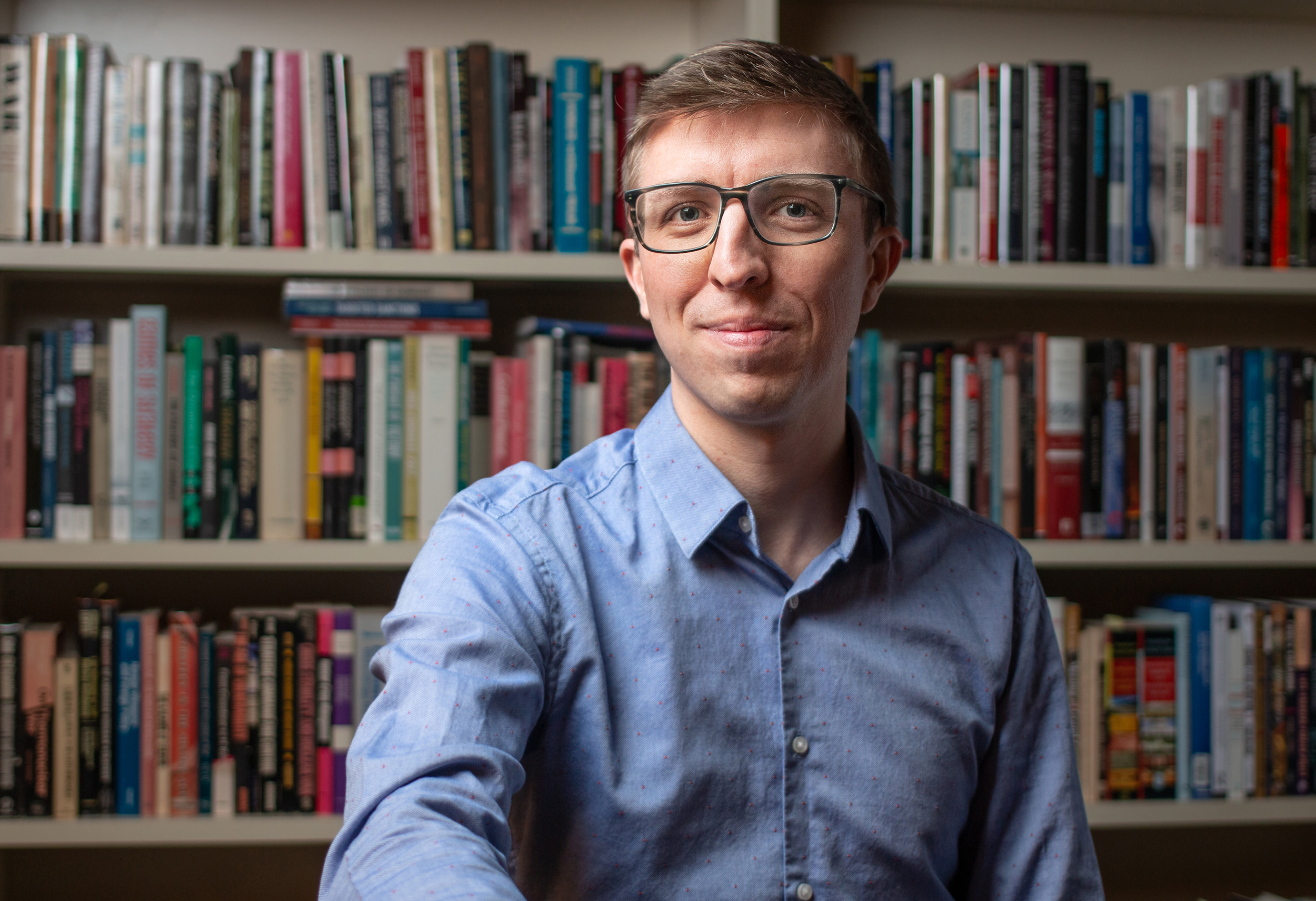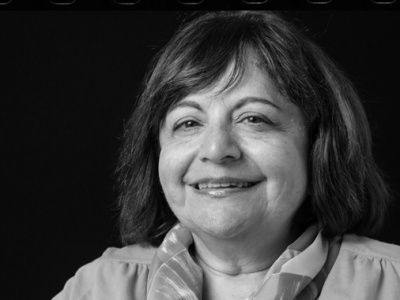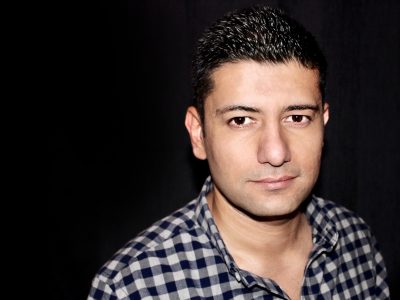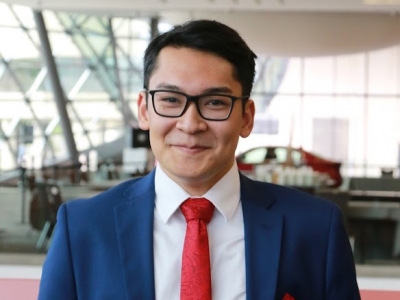By Karen Kelly
Photos by Bryan Gagnon
Legal Studies PhD candidate Jeffrey Bradley continues Carleton’s 19-year tradition of sending books and letters to incarcerated people across North America.

Jeff-Bradley
Jeffrey Bradley recently received a letter from a man incarcerated at the Washington State Penitentiary in Walla Walla. The writer was looking for ten copies of Mariame Kaba’s new book We Do This ‘Till We Free Us: Abolitionist Organizing and Transformative Justice.
“He wanted ten copies for a reading group to learn more about abolitionist organizing and how the system can be dismantled by building alternative justice processes,” explains Bradley, himself a proponent of alternative justice. “I sent him one copy and the publisher agreed to send ten more to the group members.”
Whether it’s dictionaries, how-to manuals, romance novels, or political treatises, Bradley and his fellow volunteers frequently delve into their large cache of donated books to find those requested by prisoners and their advocates. Bradley first heard of Books 2 Prisoners—run by Carleton’s chapter of the Ontario Public Interest Research Group (OPIRG)—when he was volunteering with the Millhaven Lifers’ Liaison Group which establishes connections and supports life-sentenced prisoners.
“The two really aligned because we work in solidarity with incarcerated people,” explains Bradley, who got involved with prisoner advocacy as an undergraduate. “When they’re inside, their human rights are often violated, just because of the conditions of confinement and violence of incarceration. And then they’re so often displaced when they come back to the community.”

While Books 2 Prisoners can send packages directly to prisoners in the U.S., they can’t in Canada. Here, the group has to work through employees such as English teachers or chaplains to deliver the packages.
“It sometimes seems like you’re just sending a book or a letter, but it means so much to someone who’s incarcerated and who is really, in many ways, out of sight and out of people’s minds,” says Bradley.
While some prison authorities may be suspicious of the group’s intent, Bradley firmly believes that everyone has a right to read.
“No one should be denied access to reading material because books allow people to critically think and learn and grow,” says Bradley. “In the worst point of their lives, books can inspire and empower people.”
The group also aims to raise awareness on the “outside” about the conditions of confinement that they hear about in letters from the prisoners and to take social actions to dismantle and decarcerate the prison system.
“There’s so much education that can be done: not just us educating people in prison, but them sharing their own experiences and knowledge,” says Bradley. “It’s not a paternalistic thing: we’re here to help and learn together.”
Monday, March 21, 2022 in FPA Voices, Students
Share: Twitter, Facebook



